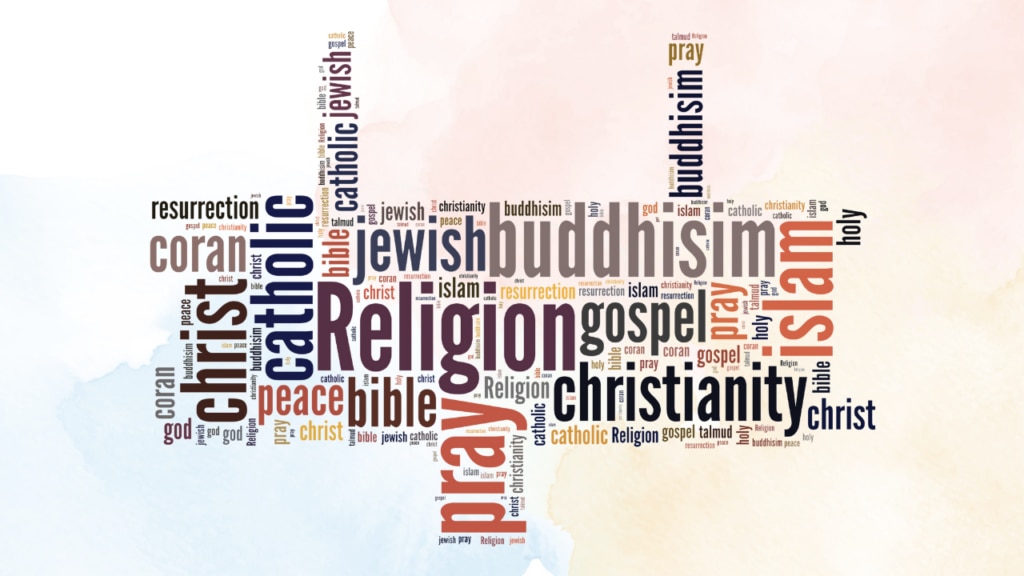Ariyo Fadlul-Muqsit Oluwasegun, Student, Jamia Ahmadiyya International, Ghana

God’s guidance has never been confined to a single nation or age; He has raised His Messengers among all peoples, across every language and culture, in order to invite humankind to the worship of the One, True God. Allah says:
وَاِنۡ مِّنۡ اُمَّۃٍ اِلَّا خَلَا فِیۡہَا نَذِیۡرٌ
“And there is no people to whom a Warner has not been sent.” (Surah Fatir, Ch.35: V. 25)
He also states:
وَلَقَدْ بَعَثْنَا فِي كُلِّ أُمَّةٍ رَّسُولاً أَنِ اعْبُدُواْ اللّهَ وَاجْتَنِبُواْ الطَّاغُوتَ
“And We did raise among every people a Messenger, preaching: Worship Allah and shun the Evil One.” (Surah al-Nahl, Ch.16: V. 37)
If this shared spiritual pedigree were recognised and respected today, the world could be spared much of the bloodshed wrongly waged “in the name of religion”. Interfaith dialogue, therefore, emerges as both an ethical duty and a practical necessity. Against this backdrop, we turn first to the prophetic fraternity itself.
A universal college of Prophets
The Holy Prophet Muhammadsa described the Prophets as follows:
أَنَا أَوْلَى النَّاسِ بِعِيسَى ابْنِ مَرْيَمَ فِي الدُّنْيَا وَالآخِرَةِ، وَالأَنْبِيَاءُ إِخْوَةٌ لِعَلاَّتٍ، أُمَّهَاتُهُمْ شَتَّى، وَدِينُهُمْ وَاحِدٌ
“Both in this world and in the hereafter, I am the nearest of all the people to Jesus, the son of Mary. The Prophets are paternal brothers; their mothers are different, but their religion is one.” (Sahih al-Bukhari, Kitab ahadithi l-’anbiya’, Hadith 3443)
This hadith underlines a natural solidarity between faiths that springs from a single Divine Source. Recognising this kinship is the first step toward mutual respect and sets the stage for examining our contemporary reality.
Contemporary relevance
Sectarian rhetoric continues to fuel conflicts across the world. Political, historical and economic factors undeniably intertwine, yet religious symbolism often amplifies tensions. Such tragedies remind believers that silence is no longer an option; proactive, principled dialogue is required to reclaim religion as a force for reconciliation rather than discord. To guide that dialogue, the Holy Quran provides an enduring blueprint.
Quranic blueprint for dialogue
The Holy Quran offers an effective methodology:
قُلْ يَا أَهْلَ الْكِتَابِ تَعَالَوْاْ إِلَى كَلِمَةٍ سَوَاء بَيْنَنَا وَبَيْنَكُمْ أَلاَّ نَعْبُدَ إِلاَّ اللّهَ وَلاَ نُشْرِكَ بِهِ شَيْئًا وَلاَ يَتَّخِذَ بَعْضُنَا بَعْضاً أَرْبَابًا مِّن دُونِ اللّهِ
“Say, ‘O People of the book, come to a word equal between us and you- that we worship none but Allah, and that we associate no partner with Him, and that some of us take not others for Lords beside Allah.” (Surah al-Imran Ch.3: V.65)
The expression kalimatin sawāʾ – “a word equal” – urges believers to seek common doctrinal ground as the starting point for cooperation. It neither demands theological compromise nor sanctions polemics; instead, it invites honest engagement rooted in the shared principle of divine Unity. History shows how Muslims have attempted to implement this guidance, with the Ahmadiyya Muslim Jamaat often at the forefront of such efforts.
Some efforts by the Ahmadiyya Muslim Jamaat
Message of Peace (1908): In British India, Hazrat Mirza Ghulam Ahmad, the Promised Messiahas, proposed a pact whereby Hindus would respect and honour the Holy Prophet of Islam, peace be upon him, and would look upon him as a true Messenger of God, even as he and his followers believed in Rama and Krishna as God’s elect. (Five-Volume Commentary, Vol. 2, p. 514)
Parliament of World Religions (Lahore, 1896): When Swami Sadhu Shugan Chandar convened the second religious conference, the Promised Messiahas delegated Hazrat Maulvi Abdul Karim Sialkotira to present his celebrated paper. Its publication convinced many readers of Islam’s vitality and compassion – an early vindication of the power of scholarly, courteous dialogue. (“Conference of Great Religions (Jalsa Azam Mazahib)”, www.ahmadipedia.org)
These precedents rest on the inviolable principle of freedom of conscience, to which we now turn.
Freedom of conscience
Coercion is antithetical to genuine faith:
لَاۤ اِکۡرَاہَ فِی الدِّیۡنِ ۟ۙ قَدۡ تَّبَیَّنَ الرُّشۡدُ مِنَ الۡغَیِّ
“There should be no compulsion in religion. Surely, right has become distinct from wrong.” (Surah Al-Baqarah Ch.2: V.257)
This verse guarantees freedom of religion. Tolerance, however, does not mean moral relativism: Muslims are still enjoined to present the truth of Islam with hikmah (wisdom) and maw‘izah hasanah (gentle exhortation), trusting that hearts are ultimately guided by God. Safeguarding freedom must therefore be paired with practical initiatives that translate dialogue into shared benefit.
Towards a practical programme
- Local dialogue circles: Establish neighbourhood panels where representatives of different faiths meet quarterly to address social concerns – e.g., food poverty, youth violence.
- Shared service projects: Joint blood‑donation drives or environmental clean‑ups build camaraderie beyond theological debate.
- Model mosques & churches: Open‑day programmes, guided tours and Q‑and‑A sessions foster understanding and dispel misconceptions.
- Scholarly exchange: Seminars between seminaries encourage academic, evidence‑based discussion rather than sensational sound‑bites.
Such initiatives, rooted in scriptural mandate and prophetic example, point toward a clear destination.
Conclusion
Interfaith dialogue is not an optional courtesy but a Quranic duty and humanitarian necessity. By returning to the Prophetic ideal of mutual honour and by implementing concrete initiatives at the grassroots level, believers can transform religious diversity from a pretext for conflict into a catalyst for collective progress. May Allah make us instruments of that peace. Amin.

